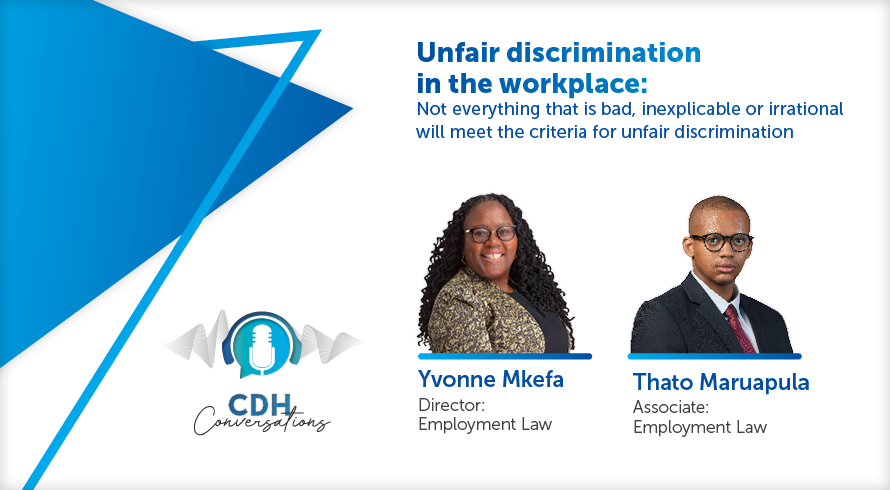Retrenched employees fail to notify liquidators
The applicant in Direct Channel KwaZulu Natal (Pty) Ltd (in Liquidation) v Naidu and Others LC (D879/10) [2015] ZALCD 52 28 May 2015 issued a notice in terms of s189 of the Labour Relations Act, No 66 of 1995 informing its employees that it was contemplating dismissing them for operational requirements.
After various consultations between the applicant (Employer) and its employees, the Employer dismissed certain of its employees including the eight respondents (Employees).
Dissatisfied with their dismissal, the Employees referred a dispute to the CCMA for conciliation. The CCMA failed to resolve the matter. On 12 October 2010, the Employees referred the dispute to the Labour Court.
Shortly after the Employer’s opportunity to file its statement of response lapsed, the Employer applied to the High Court for its own winding up. The Employer was accordingly placed under provisional liquidation. The Employer informed the Employees’ union of this fact.
The matter lay dormant until March 2013 when the Employees brought an application for default judgment against the Employer. Again, nothing happened until the matter was set down for hearing on 21 May 2014 as an unopposed application. The Employer filed its statement of response along with an affidavit seeking the dismissal of the default judgment on 20 May 2014. The matter was adjourned to be placed on the opposed roll.
The new Companies Act, No 61 of 2008 contains transitional arrangements. Item 10 of Schedule 5 of the Companies Act states that court proceedings that began under the old Companies Act, No 61 of 1973 (Old Companies Act) should continue under the Old Companies Act.
In this case, the Employer’s winding up order was granted on 9 November 2010. The new Companies Act came into operation on 1 May 2011. Thus, the legislation which applied and continued to apply in this matter was the Old Companies Act.
At the hearing of the matter, the Employer submitted that in terms of s359(2)(a) of the Old Companies Act the Employees were obliged, within four weeks of the liquidator’s appointment, to give the liquidator three weeks’ written notice that the Employees intended to continue with their claim. As they had failed to do so, the Employees were deemed to have abandoned their claim.
The Employees argued that the Employer was barred from raising this defence as it had waited almost four years to file its statement of response.
In deciding the matter, the court considered the following two issues:
- if the Employer was allowed to advance its argument that the Employees were obliged to give it notice in accordance with s359(2)(a) of the Old Companies Act; and
- if the consequence of s359(2)(a) of the Old Companies Act rendered the Employees’ claim abandoned.
In answering the first question, the court held that the Employer’s defence was akin to a special plea. It was therefore entitled to raise it at the hearing of the Employees’ application for default judgment.
In light of the above, the court merely looked at the wording of s359(2)(a) of the Old Companies Act which stated that should a party fail to give the liquidator three weeks’ written notice of their intention to continue with a claim against the liquidated company then the party is deemed to have abandoned its claim.
The Employees’ application for default judgment was accordingly dismissed with costs. It is worth noting that due to Schedule 5 – 9(1) of the Companies Act, chapter 14 of the Old Companies Act (which deals with the liquidation of companies and includes s359(2)(a)) continues to apply as if the Old Companies Act had not been repealed.
Accordingly, if a company that is involved in an employment related dispute is liquidated, notice is required from the employee or its representative that it intends to continue with its claim.
The information and material published on this website is provided for general purposes only and does not constitute legal advice. We make every effort to ensure that the content is updated regularly and to offer the most current and accurate information. Please consult one of our lawyers on any specific legal problem or matter. We accept no responsibility for any loss or damage, whether direct or consequential, which may arise from reliance on the information contained in these pages. Please refer to our full terms and conditions. Copyright © 2026 Cliffe Dekker Hofmeyr. All rights reserved. For permission to reproduce an article or publication, please contact us cliffedekkerhofmeyr@cdhlegal.com.
Subscribe
We support our clients’ strategic and operational needs by offering innovative, integrated and high quality thought leadership. To stay up to date on the latest legal developments that may potentially impact your business, subscribe to our alerts, seminar and webinar invitations.
Subscribe




